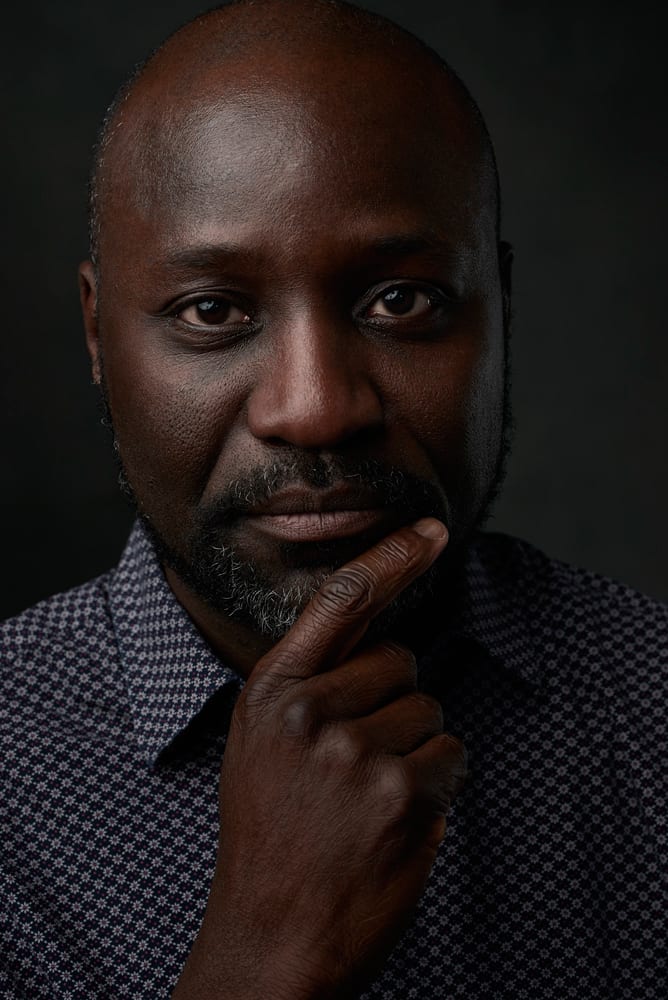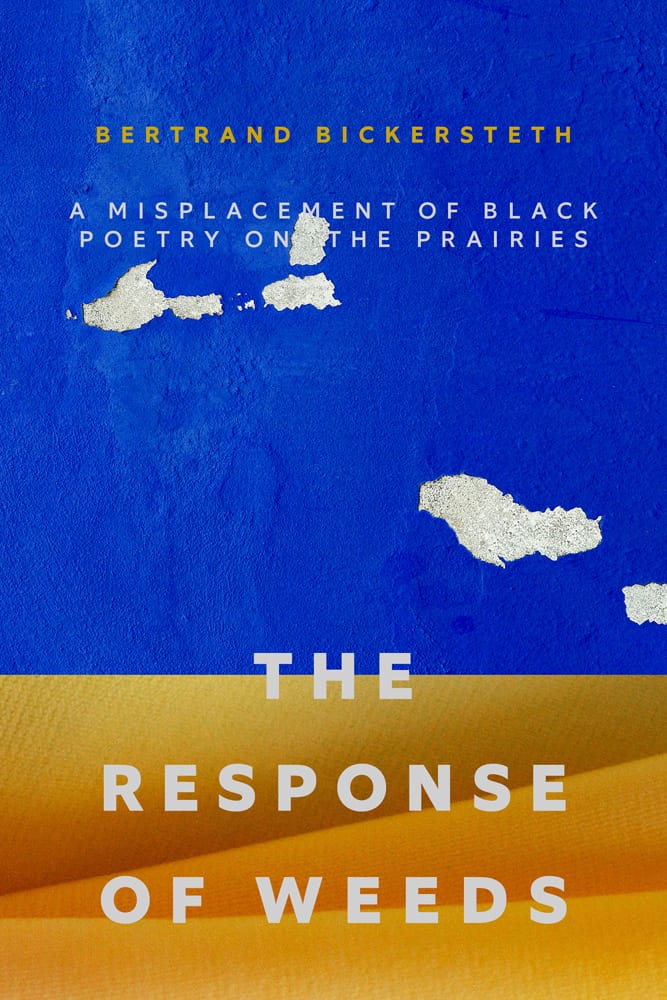Book Drive is our online series about Alberta authors. There’s no better time to curl up with a good read.
“I know these rivers that flow past me.”
The first utterance of the embodied black voice in Bertrand Bickersteth’s new collection of poetry is emblematic of verses that weave through time and across borders, just as Black people have in North America. In The Response of Weeds these Black bodies and spirits are elevated to their rightful place in Alberta’s story, speaking the secret language of those who have, by way of happenstance and magic, found their way to the Prairies.
Just as Bickersteth has. The Calgary-based writer and educator (at Olds College) was born in Sierra Leone, but immigrated to Canada in the early 1970s, at the age of five. His father had earned grad-school admission to Harvard, but, hesitant to move to the United States, he instead chose to uproot for the University of Alberta, becoming part of the province’s Black and African diaspora.

Eventually the younger Bickersteth left Alberta to study in the U.K. and then teach in the U.S. It was only after this time away, he says, that he really began to understand his identity as a Black Albertan. If the British understand their days as a colonial superpower to be waning, and Americans see their reign as eternal, Canadians are caught somewhere in between. So, he thought, if mainstream Canadians felt that way, then what about the country’s marginalized people? Bickersteth’s return to the Prairies triggered a personal reckoning he couldn’t ignore.
“It’s easy to dismiss things when you don’t have to live in it,” he says. “Being back in Canada permanently, I had a choice: Was I going to confront the issue or was I just going to do what this country has taught me to do, which is ignore it?”
Wrestling with these persistent questions led to another: What does it mean to belong in a place that can make you feel like you don’t? It became the central query of The Response of Weeds.
MORE TO READ
Book Drive: St. Albert author Jaclyn Dawn digs into small-town life
“Growing up in Canada is unique for Black people. We belong here but we are made to feel like we can’t belong here,” he says. “Narratives are very powerful; they can change and redirect reality. In the accepted narrative of Canada, this is a country of only white people. But that’s not the reality. There is always a reverse, an opposite; there’s a duality.” Bickersteth’s poems play with these dualities—black and white, urban and rural, past and present—while bringing to life the massive expanse that is Alberta’s landscape, not to mention the bitter cold that can force anyone to question their place on this land.

In this context, Bickersteth references specifically Albertan locales to tell the story of the black person’s relation to them. “He is only too aware that this Peace eventually becomes the Slave,” he writes in “The Peace,” one of the poems in The Response of Weeds. The reader is always being addressed directly; there is to be no omission in the telling of this history.
A cartographer of histories, Bickersteth maps Black narratives and journeys through his poems’ clever inclusion of historical figures. The likes of legendary Alberta cowboy John Ware, fur traders Stephen, George and Pierre Bungo, and Edmonton jazz musician Clarence “Big” Miller offer a dramatic tableau of the Black experience on the Prairies. They ask us to both re-examine why a land so large has so little room for those deemed to be “other”—and reckon with the understanding that these others are very much part of us. The Response of Weeds thus becomes a monument to the things and people that have been lost in the margins, but also a beacon of remembrance and a call to celebrate.
MORE TO READ
Book Drive: Alexis Kienlen on rural families, the writing life and her new novel
The subtitle of Bickersteth’s collection, A Misplacement of Black Poetry on the Prairies, is an acknowledgement that for many readers, these poems will feel out of place, strange and new—but ultimately revelatory. “My hope,” he says, “is that this book helps people articulate themselves and feel the confidence and certainty of their voices.”
HOW TO SAVE
Bertrand Bickersteth’s The Response of Weeds is available through Indigo. Members earn up to 5% in reward dollars on online Indigo purchases—including books, giftware, electronics and more—made through the AMARewards eStore.
